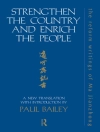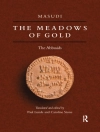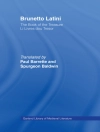Offers readings of key contemporary trends and themes in the vibrant genre of short-story writing in Germany, Austria, and Switzerland, with attention to major practitioners and translations of two representative stories.
Since the 1990s, the short story has re-emerged in the German-speaking world as a vibrant literary genre, serving as a medium for both literary experimentation and popular forms. Authors like Judith Hermann and Peter Stamm have had a significant impact on German-language literary culture and, in translation, on literary culture in the UK and USA. This volume analyzes German-language short-story writing in the twenty-first century, aiming to establish a framework for further research into individual authors as well as key themes and formal concerns.
An introduction discusses theories of the short-story form and literary-aesthetic questions. A combination of thematic and author-focused chapters then discuss key developments in the contemporary German-language context, examining performance and performativity, Berlin and crime stories, and the openendness, fragmentation, liminality, and formal experimentations that characterize short stories in the twenty-first century. Together the chapters present the rich field of short-story writing in Germany, Austria, and Switzerland, offering a variety of theoretical approaches to individual stories and collections, as well as exploring connections with storytelling, modernist short prose, and the novella. The volume concludes with a survey of broad trends, and three original translations exemplifying the breadth of contemporary German-language short-story writing.
قائمة المحتويات
List of Illustrations
Note on Translations
Introduction to the Contemporary Short Story in German –
Andrew Plowman, Lyn Marven, and Kate Roy
Chapter 1: Berlin Shorts: The German Capital in the Short Story of the Twenty-First Century –
Katharina Gerstenberger
Chapter 2: The German Crime Story in the Twenty-First Century –
Todd Herzog
Chapter 3: Performance, Performativity, and the Contemporary German
Kurzgeschichte –
Emily Spiers
Chapter 4: Cramped Spaces, Creative Bottlenecks: Sudabeh Mohafez’s
das zehn-zeilen-buch and the Short-Short –
Kate Roy
Chapter 5: Bodo Kirchhoff’s
Widerfahrnis: A
Novelle for Our Time? –
Helmut Schmitz
Chapter 6: The Liminal Space of the Short Story: Clemens Meyer’s
Die Nacht, die Lichter and
Die stillen Trabanten –
Gillian Pye
Chapter 7: Framing the Presence: Judith Hermann’s
Lettipark –
Leonhard Herrmann
Chapter 8: Of Unhomed Subjects and Unsettled Voices: Alois Hotschnig’s
Die Kinder beruhigte das nicht –
Heide Kunzelmann
Chapter 9: Literary Development and Rewriting Spaces in the ‘Complete Stories’: Peter Stamm’s
Der Lauf der Dinge –
Andrew Plowman
Chapter 10: On Disappearing: Reading Ulrike Almut Sandig with Sylvia Bovenschen –
Heike Bartel and Elizabeth Boa
Chapter 11: Metamorphic Becomings: Yoko Tawada’s
Opium für Ovid: Ein Kopfkissenbuch von 22 Frauen –
Áine Mc Murtry
Chapter 12: Melinda Nadj Abonji and Jurczok 1001: Performance, Politics, and Poetry –
Rafaël Newman and Caroline Wiedmer
Chapter 13: Rhizomatic Wanderings: The Writings of Gabriele Petricek –
Margarete Lamb-Faffelberger
Chapter 14: Trends and Issues in the Contemporary German-Language Short Story –
Lyn Marven
Appendix: Contemporary German-Language Short Stories in Translation
Sudabeh Mohafez, A Short-Short Selection –
Translated by Kate Roy
Roman Ehrlich, ‘Engineers of Time’ –
Translated by Lyn Marven
Saša Stanišić, ‘The Factory’ –
Translated by Lyn Marven
Bibliography of Primary Texts
Notes on Contributors
عن المؤلف
Katharina Gerstenberger is associate professor of German at the University of Cincinatti.












